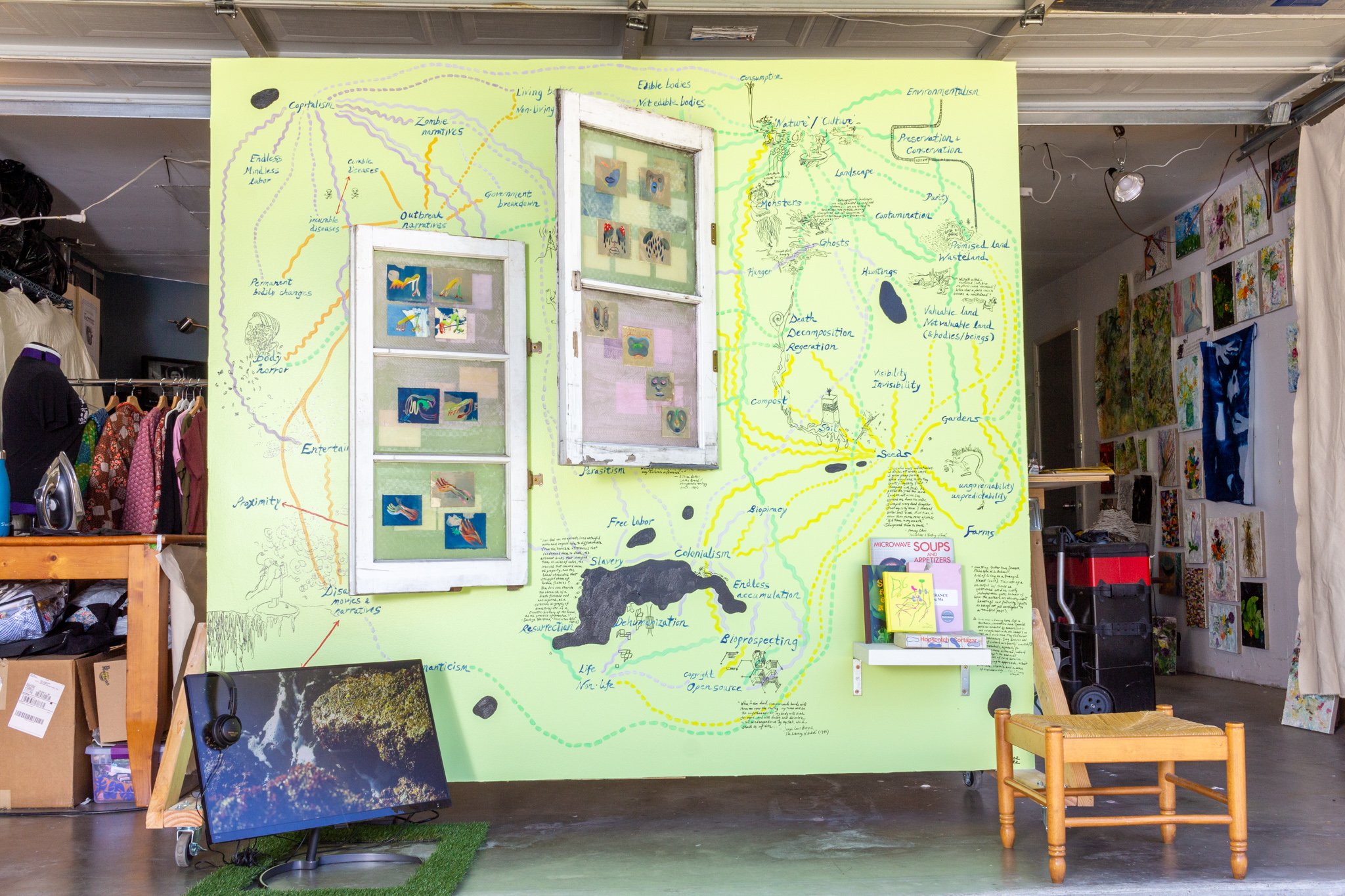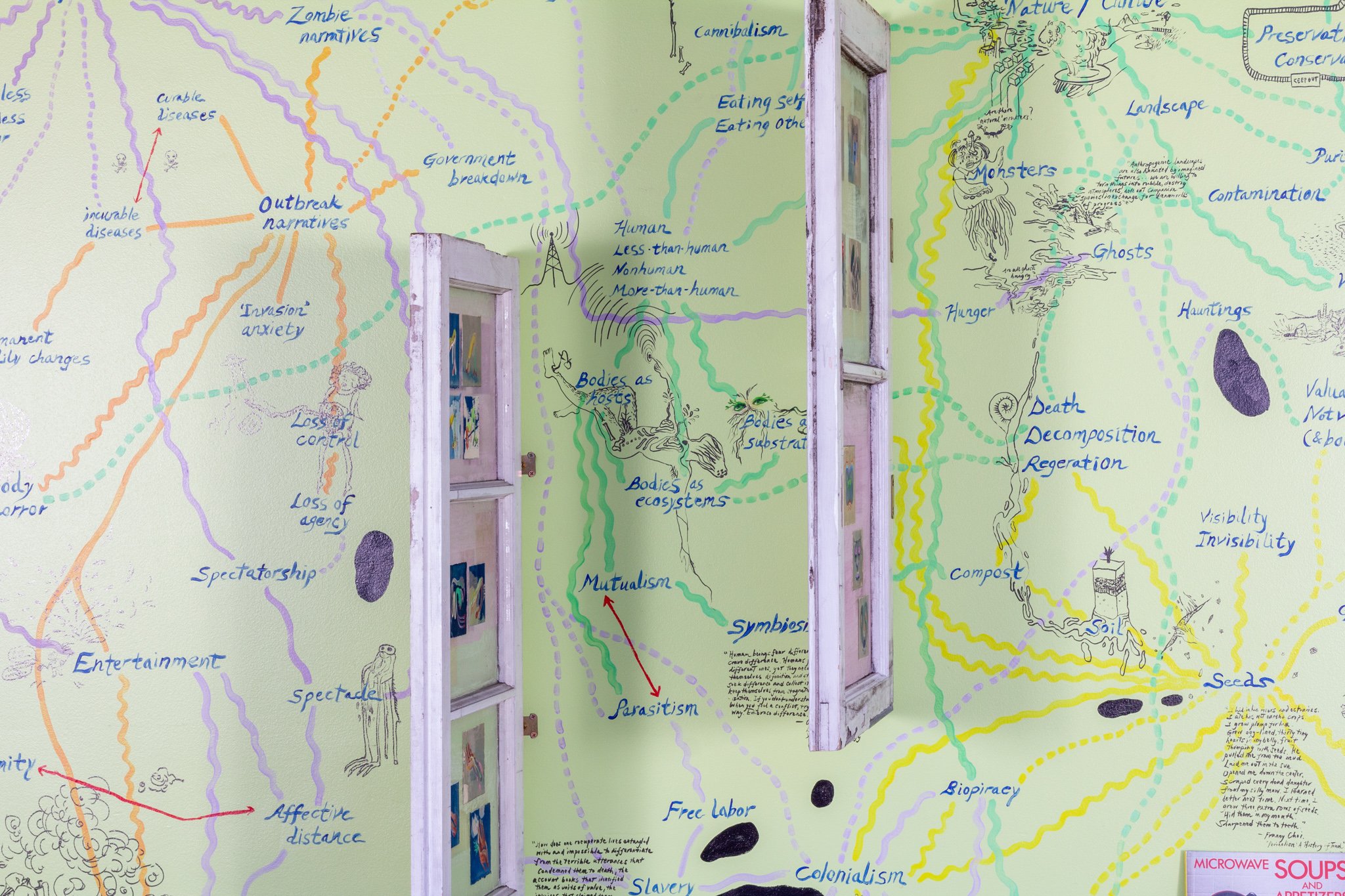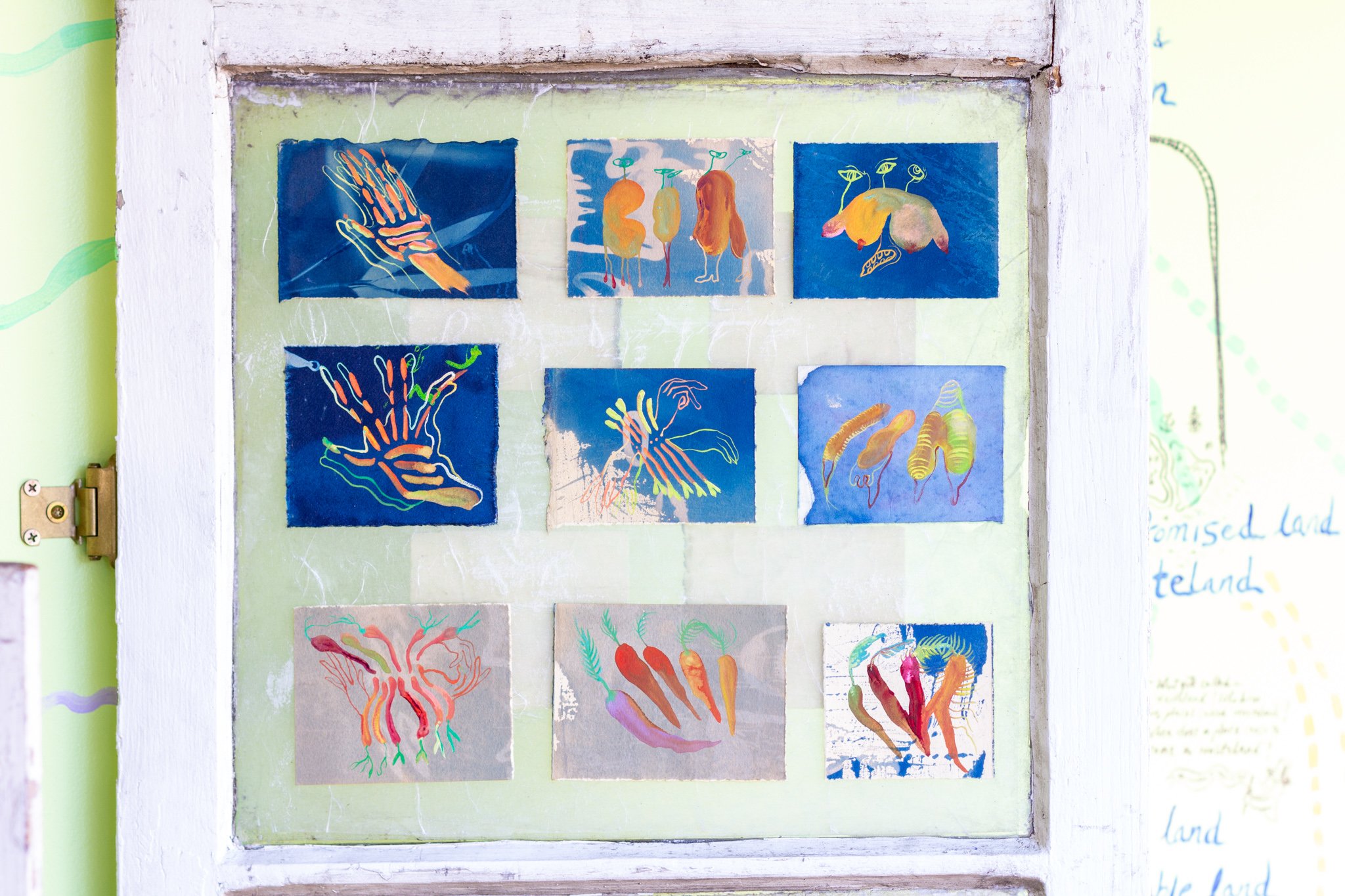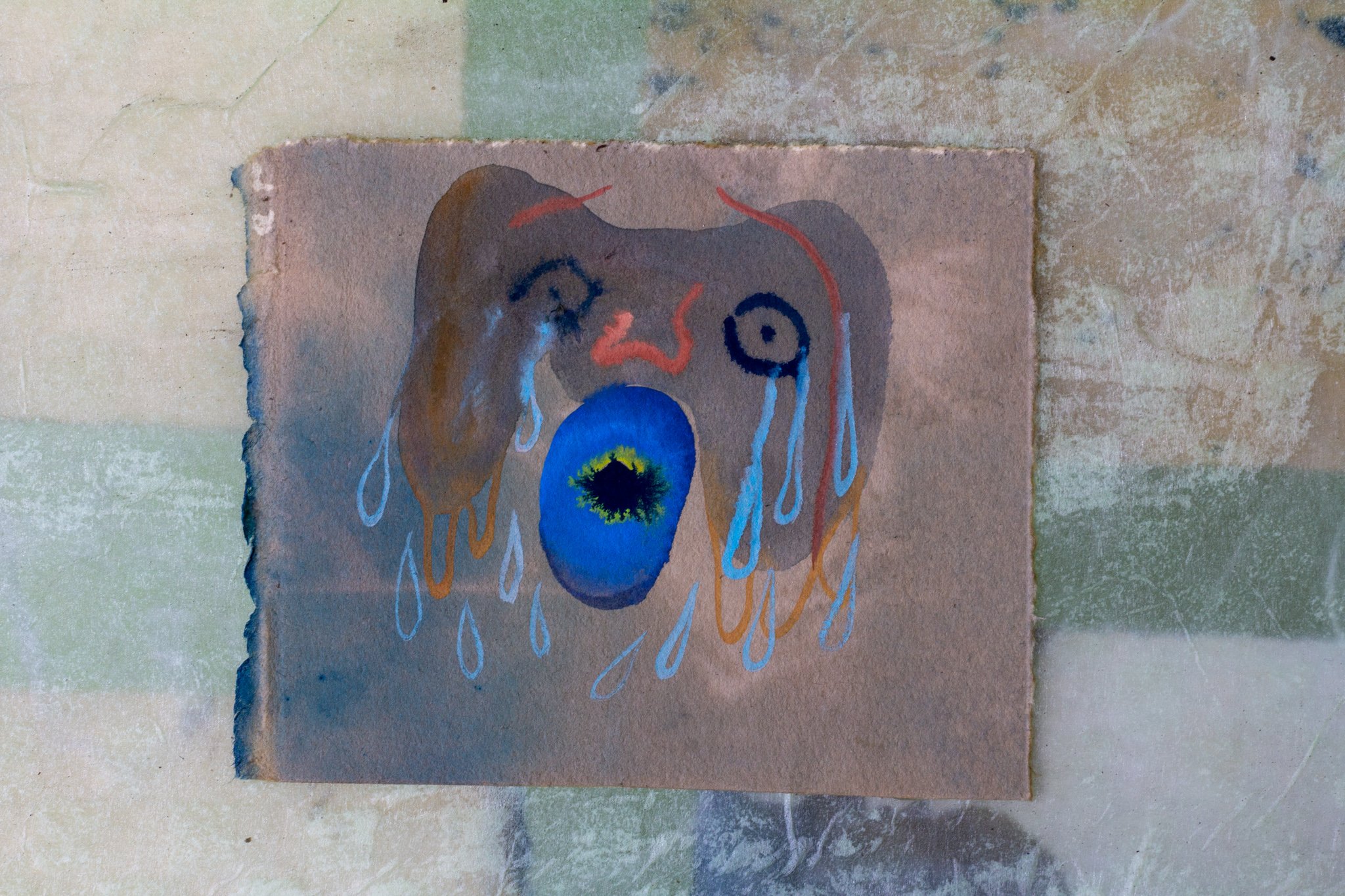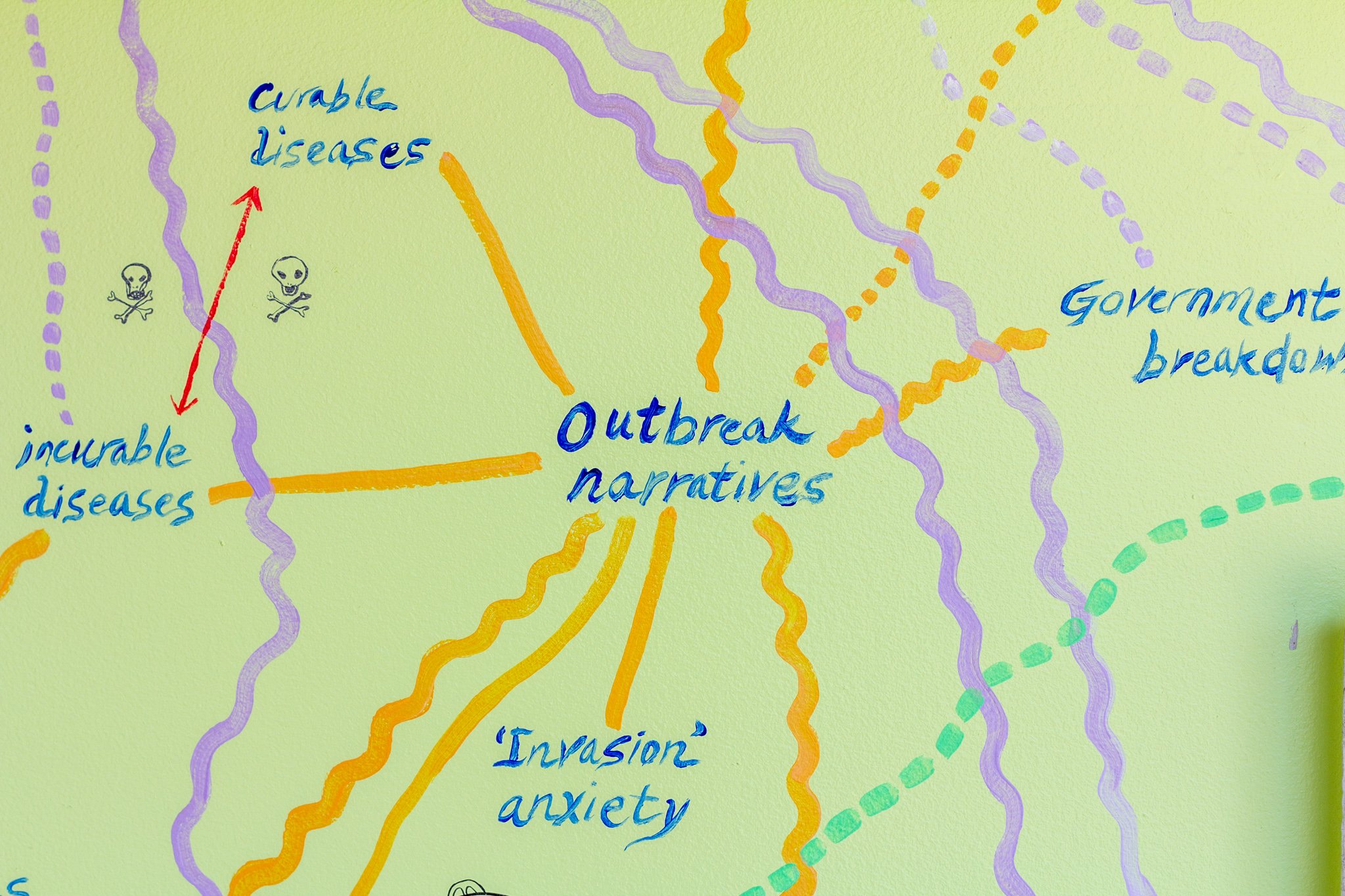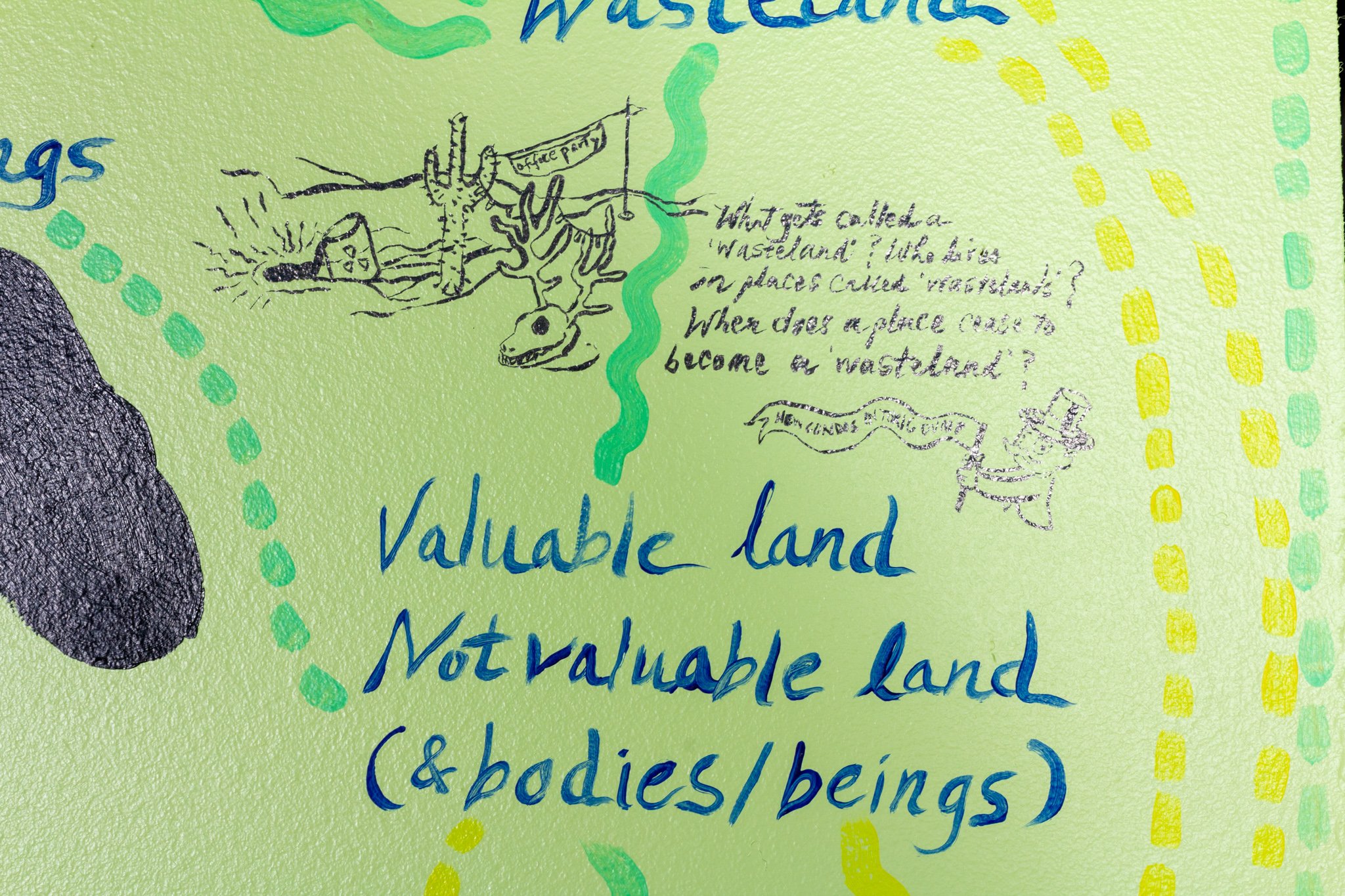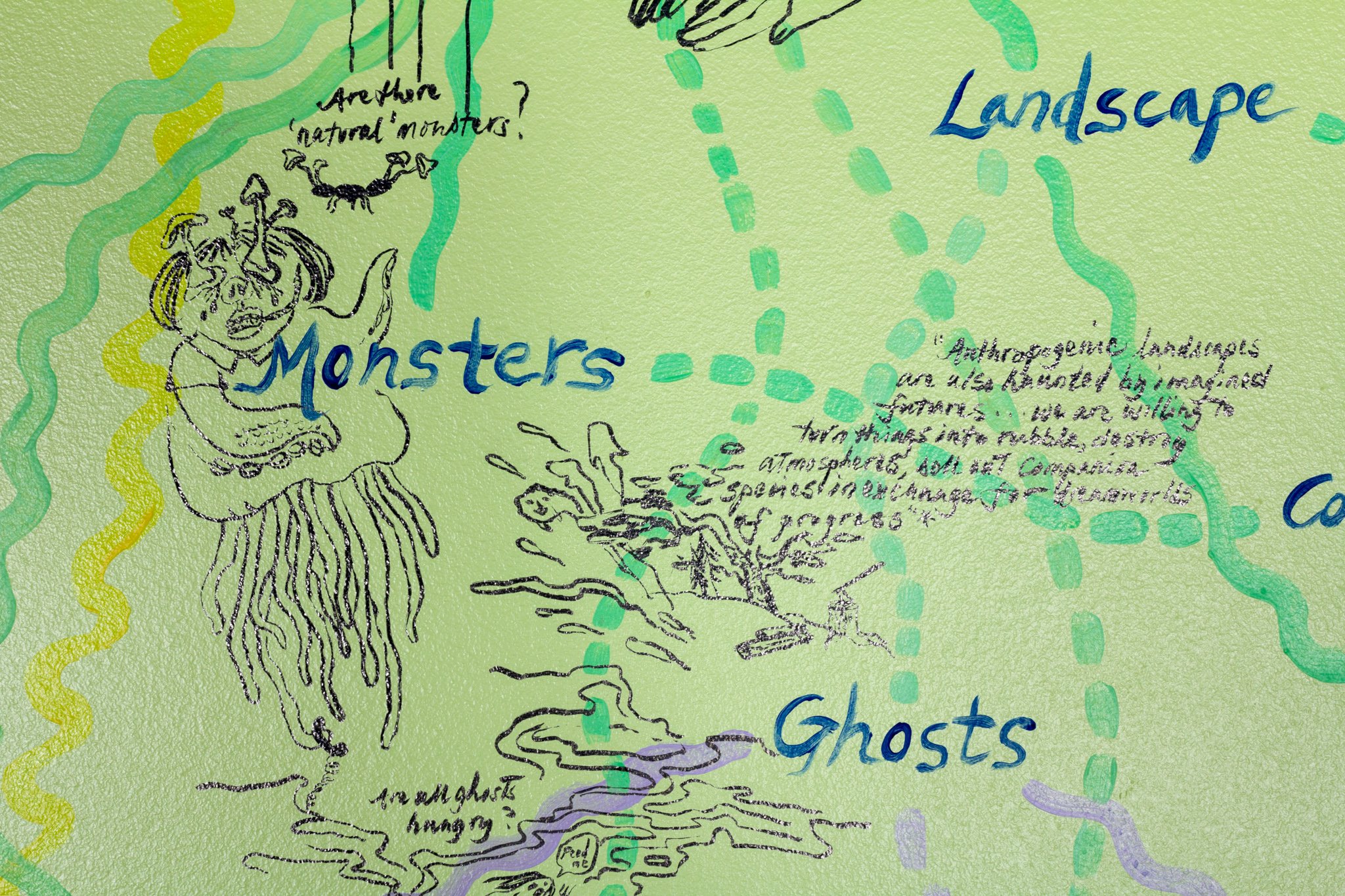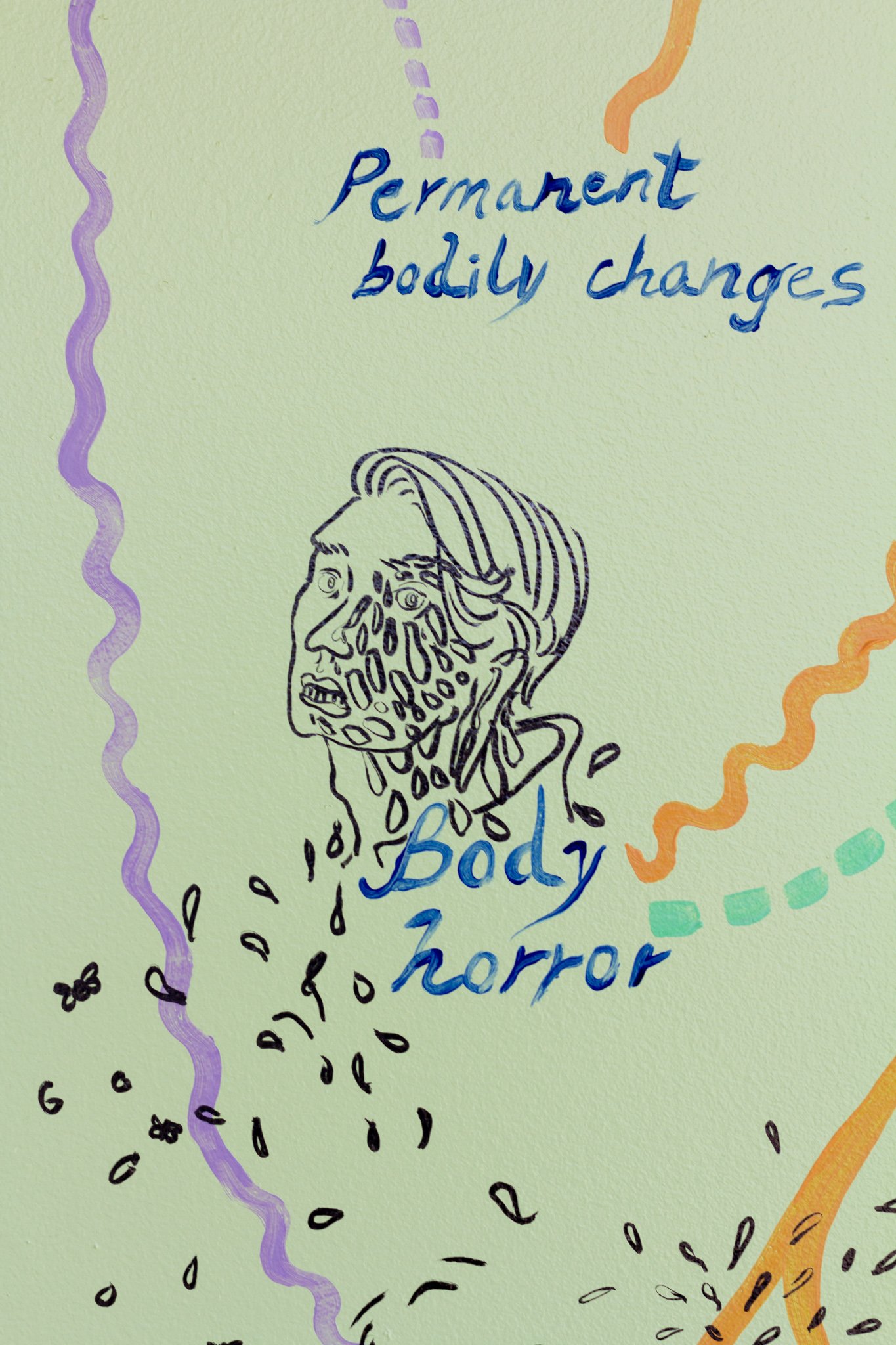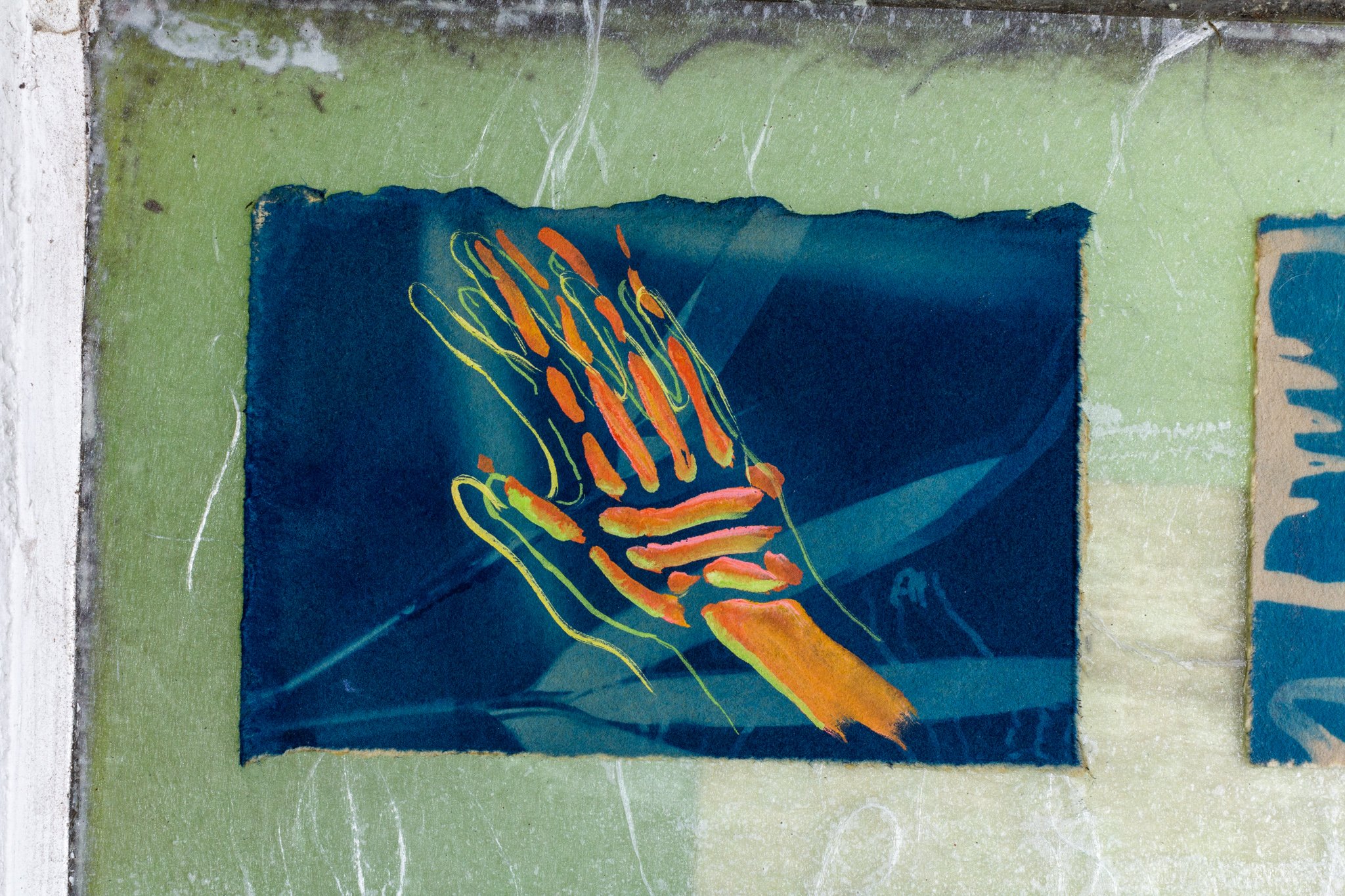Terrine, 2022. Installed at Labor is a Medium (Santa Rosa, CA). Photography by Perry Doane.
Terrine was a diagram-installation that used a 6’ x 6’ freestanding wall and a classic architectural trope of zombie cinema (the window, which momentarily separates inside/outside, or self/other, for an illusory minute) to spatially experiment with mapping ideas across surfaces. It was also an experiment in using mapping to thread together my short films The Lonely Age and Seedtime with the beginnings of a nascent zombie comic book project — tentatively also titled Terrine — and strands of research that have been coalescing since 2017.
Will Terrine the comic book ever get completed? I don’t know. If I were to be really obnoxious, I might say that this installation was a conceptual map for a hypothetical comic book about zombies and capitalism, a work that will never see completion because of the daily exigencies imposed by capitalism. (Too much?) In any case, I consider this installation largely a response to the provisional qualities of its environment (a freestanding wall in a garage-studio-bar-gallery), motivated by my own desire for developing strategies for de-institutionalizing my creative practice. While creating this work, I was interested in re-emphasizing aspects of making work that were antagonistic to, or slippery against, academic discourse and institutional corralling, even as I have found certain academic vocabularies and texts formative to my practice. Not sure how much of this ‘worked’, but that wasn’t really the point.
An excerpt from Daniel J. Glendening’s generous exhibition notes and essay on Terrine. : “Connie described Terrine as a mindmap for a graphic novel project about "the banalities and exigencies of late-stage capitalism amidst a zombie apocalypse." In other words, a look at a world in which disaster has struck and has entwined itself into every aspect of social, economic, and creative endeavor, but in which life, simply, goes on. A mundane apocalypse, in which a populous shrugs off the horror confronting them at every turn because they still need to pay rent. If this sounds familiar, well, that's because it is: this is the world we live in.”
